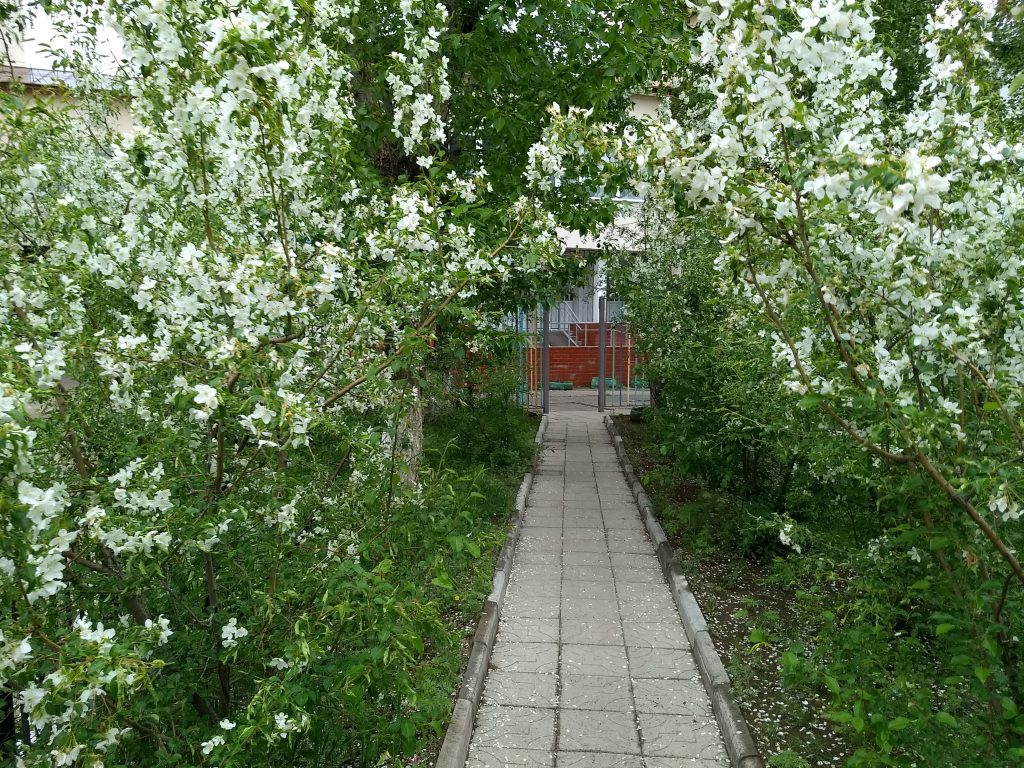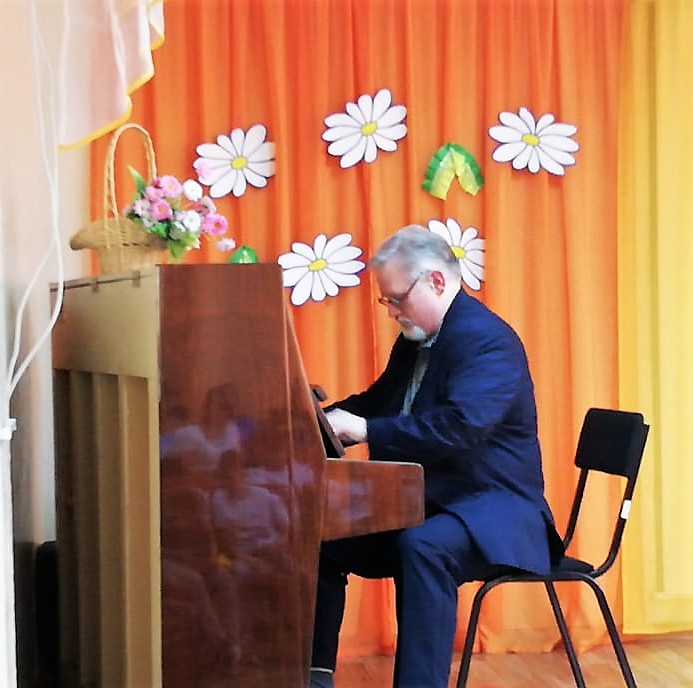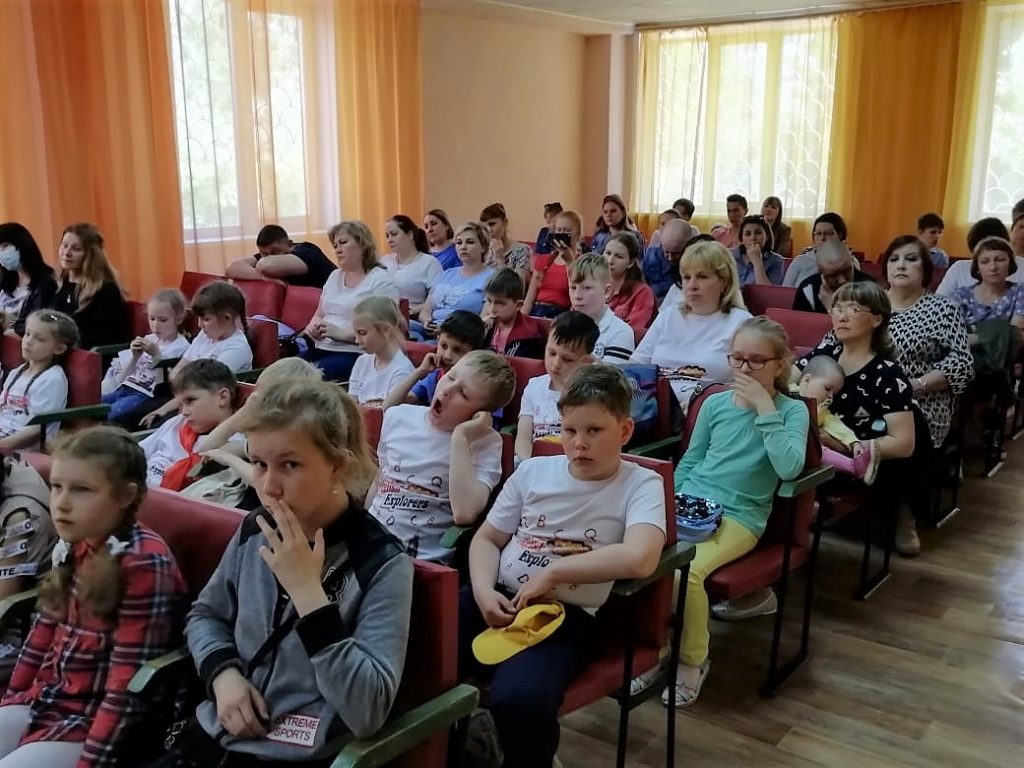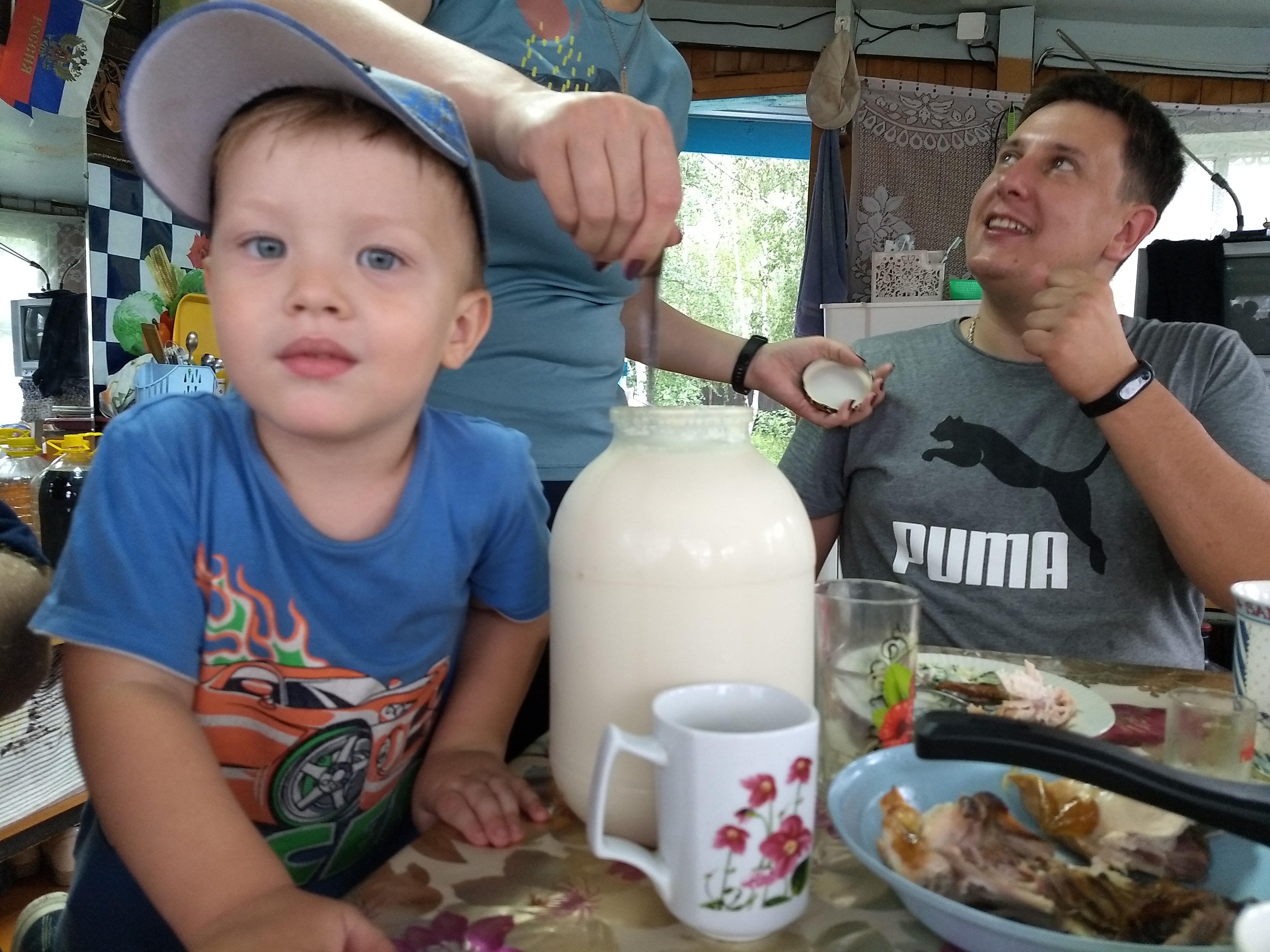Tom in Chita 2019, No. 2: FIRST WEEK OF TEACHING
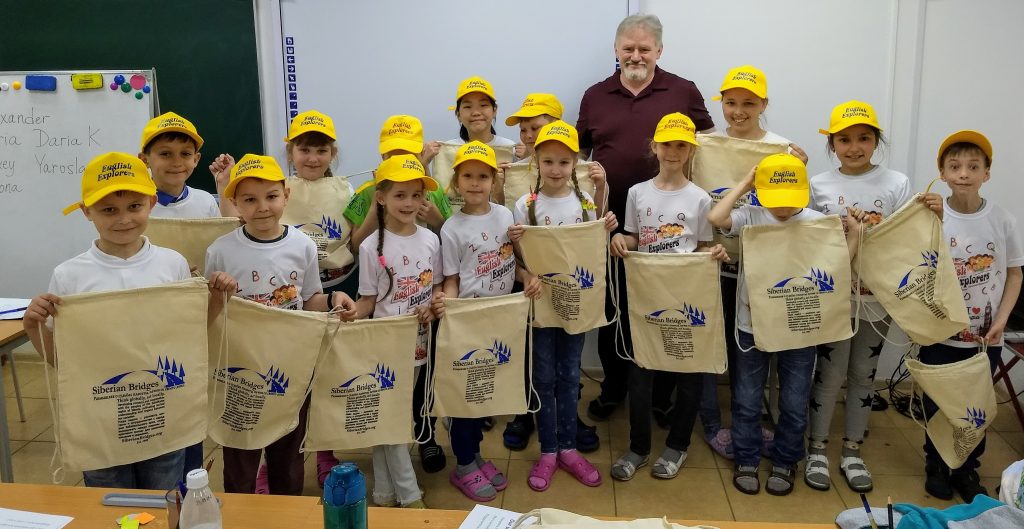
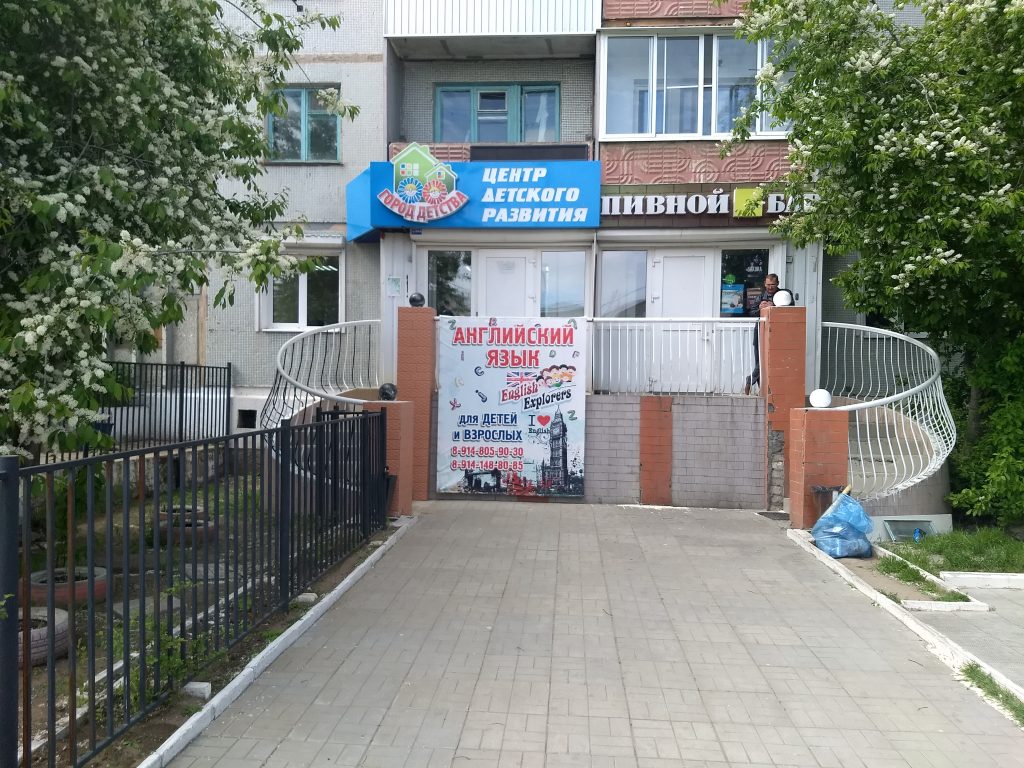
On Saturday, June 6th, we finished the first week of English Explorers day camp at The City of Childhood Child Development Center (“Gorod Detstva” or more precisely: ????? ????????? ???????? “????? ???????” ) with lunch at a cafe in the middle of Chita and a piano recital at Library No. 5 in the KSK district just outside Chita.
Here’s a quick wrap up:
This group is young students, ages 7 – 10. Most are 7 or 8, a wonderful age! Here are their names: Dasha and Maxim are brother and sister, Eva, Yaroslav, Sasha, (Aleksandr), Matvey, Masha, Nina, Kirill, Slava, Lyosha, another Dasha, Alissa, Alyona, Dari and Ilya.
Last Sunday, the camp started at a movie theater with the viewing of a film called “Mia and the White Lion”, an entry from France in Chita’s annual international film festival, now in about its 10th year. The movie was dubbed into Russian from French, but the characters were English, the story took place in South Africa, and the actors were a great international mix as well. A good and rather tough story: Mia is 14. She becomes attached to a rare white lion cub at her father’s animal farm and at the climax of the story, three years later, she races in a truck with the now full-size lion to a game preserve across the country, saving him. Amazingly the actress must have lived as a friend of the lion across the 3 year span it took to film it. The cast remained the same as the lion grew up including Mia and her young brother. English camp usage of the film: wild animal and emotion/feeling vocabulary lists.
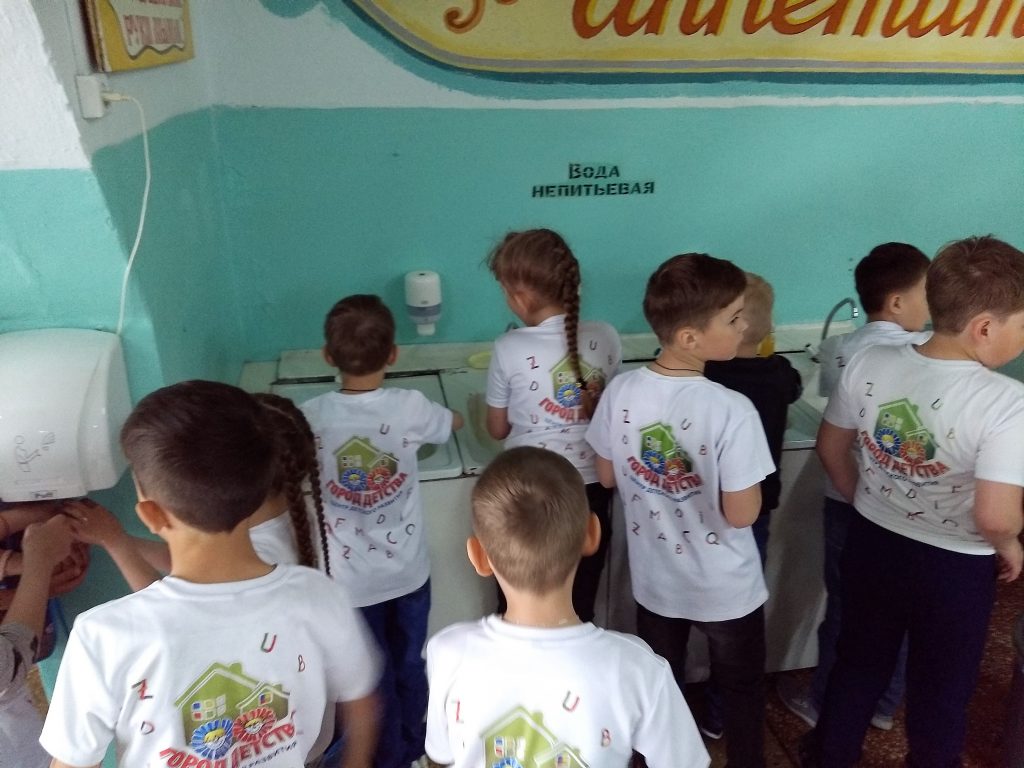
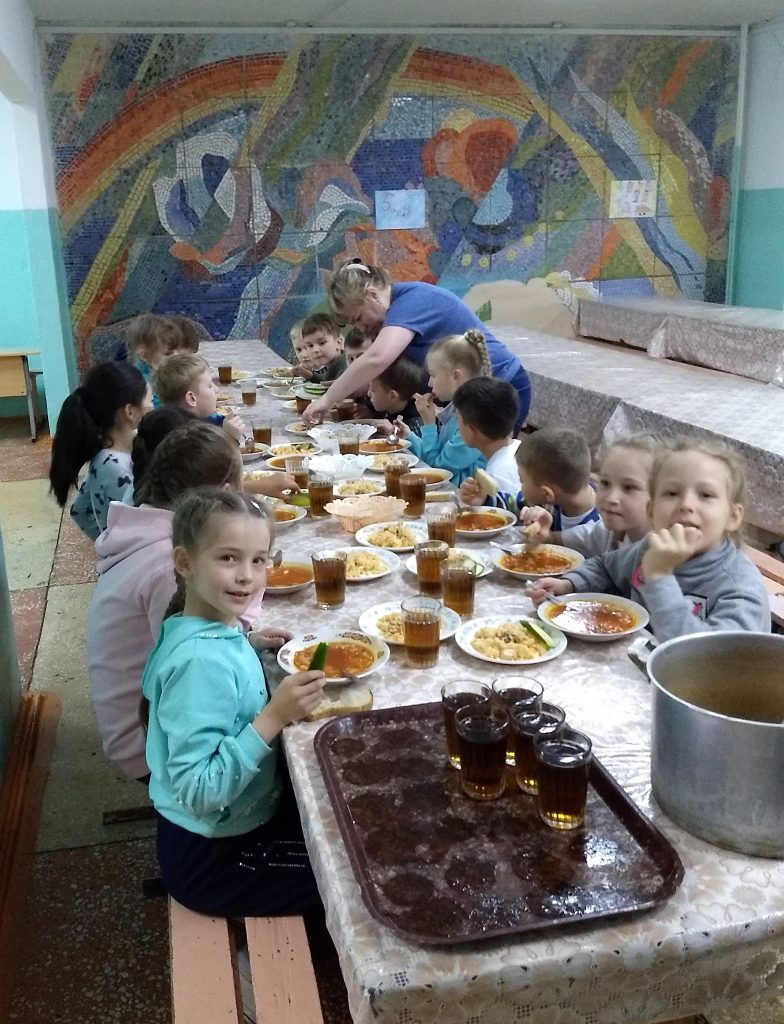
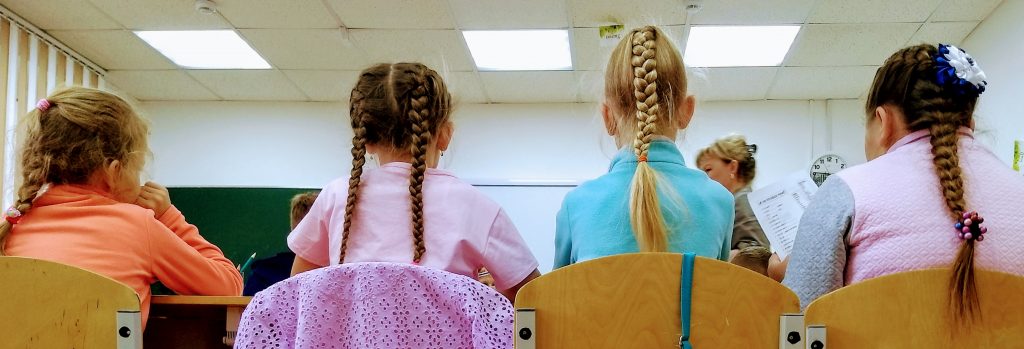
On Monday the standard routine began. 9am: review of yesterday’s words. 10am: breakfast of hot cereal and weak tea or “compote” ie. stewed fruit liquid, at the local School No. 30 nearby, recess on the playground. Then using the new words (“The movie made me happy.” “The movie made me worried.” and “The meerkat was funny.” “The father made me angry.”), worksheet(s). 1:30pm: lunch of soup, fresh vegetable, rice and chicken and dessert (for example), 2nd recess. Then new words, daily individual testing and checking worksheets, final snack. Finish at 4pm.
This was altered twice this week: one day with a visit to the trampoline center in downtown Chita one day, and on another, a visit to the rope park 30 km out of town in the forest. I missed the trampoline center—extra kids that day so no room on the bus—but I was looking forward to the rope park.
Two years ago when I taught at this same camp, then a mix of all ages from 7 – 14, we visited this unique park, but I was too out of shape to participate. This time I was ready.
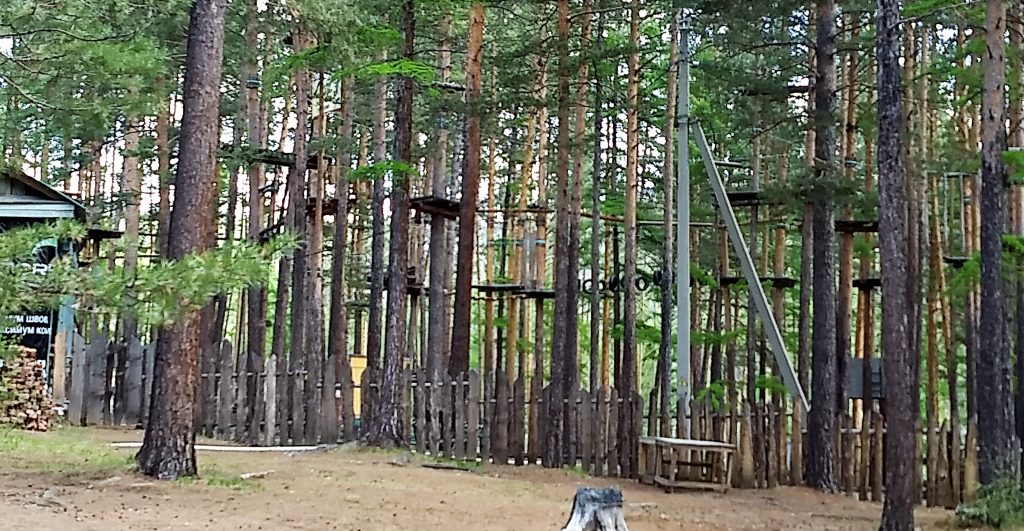
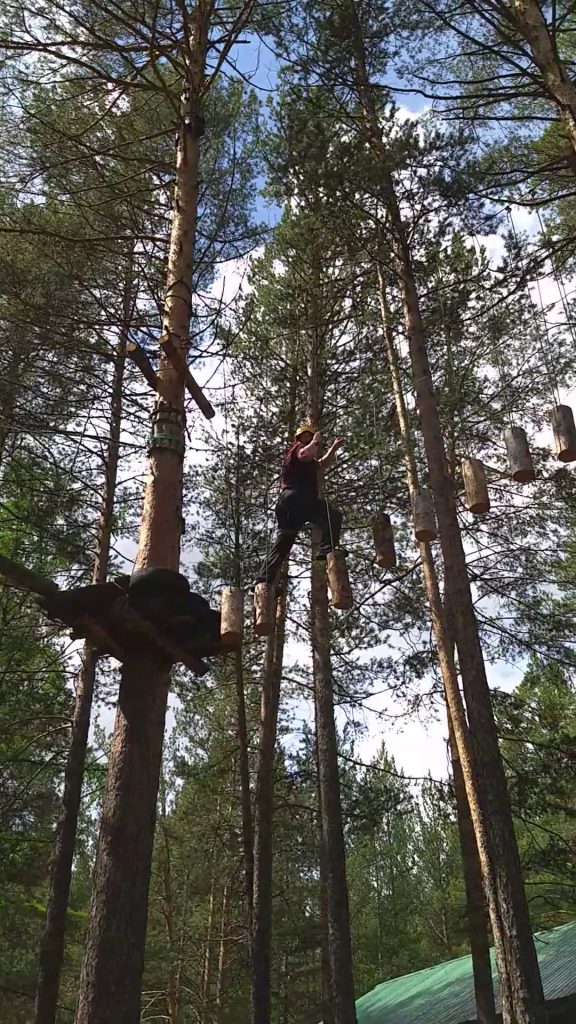
On several acres in a mature pine forest of tall well-spaced straight trees are several adventure activities, with the main focus on a climbing wall and three “rope route” circuits. The circuits are various bridges, tunnels, walkways, and in the case of the adult circuit, a swing and a bike on a tightrope(!), made with ropes, cables, planks, logs, and old car tires. The children’s circuit is about 5 feet off the ground with safety net under all parts of it. The other two are at 25-30 feet up in the trees. One of those for the more daring kids, pre-teen and up, and the other more challenging one for older teens and adults. That’s the one I tried. We are attached at all times to a taut safety cable by two ropes topped with carabiners that are attached to a harness secured around the waist and legs, so even if we let go, we can’t fall. The only really fearful moment was the trapeze-like swing across about 5 feet from one tree to another. I just didn’t trust my grip, though when I finally went, it was clear the problem was in my head not my hands. But it was all a big physical and mental challenge, and I look forward to trying again in July…maybe!
The sweetest part was all our students cheering me on, “Mister Tom! Mister Tom!” and then another camp group came and practiced their English on me, too…which was a bit unnerving since I had to concentrate so much, so a quick “Tikha! Ya rabotayoo!” reduced the distractions. (Quiet! I’m working!)
The recital today was for the kids, their parents and any of our friends, so Olga Fleshler came, and Elena with her family, Vitaly and their 11 yr old son Pasha, Vova and his 6 yr old, Varya, Irina and Michael Shipley with four of their mentoring charges from the [former] Chernovsky Children’s Home, Andrey, the brothers Ilya and Vanya, the well-known Lyosha and also their nephew, Ilya. I played the two pieces I’ll play next week at the Decembrist Festival in Petrovsk-Zabaikalsky, Chopin’s 4 Mazurkas, Op 17 and Beethoven’s Sonata No. 28, Op 101.
There was a Q&A afterwards where I was asked, among other things, if I’ve noticed any change in Chita, which of course I had, both in the new buildings, the improved streets and roads, the buses, etc. in all the new business and shopping and restaurants, in all the children, strollers, and families with 2-4 kids, and in the more outgoing willingness to engage, though still within a quiet and modest culture. But what had not changed was the warm welcome that I first felt 30 years ago on my first visit as a pianist.
